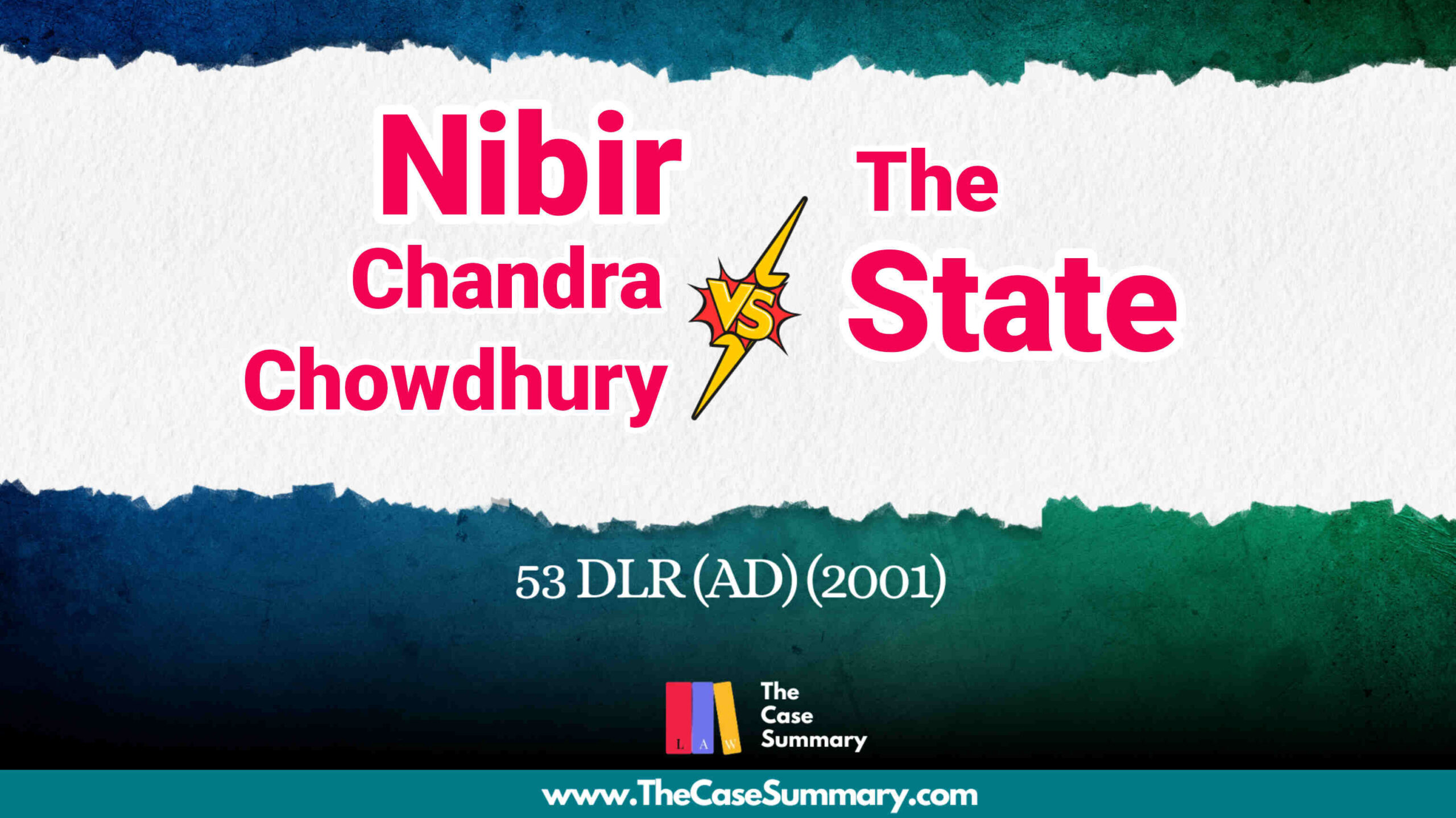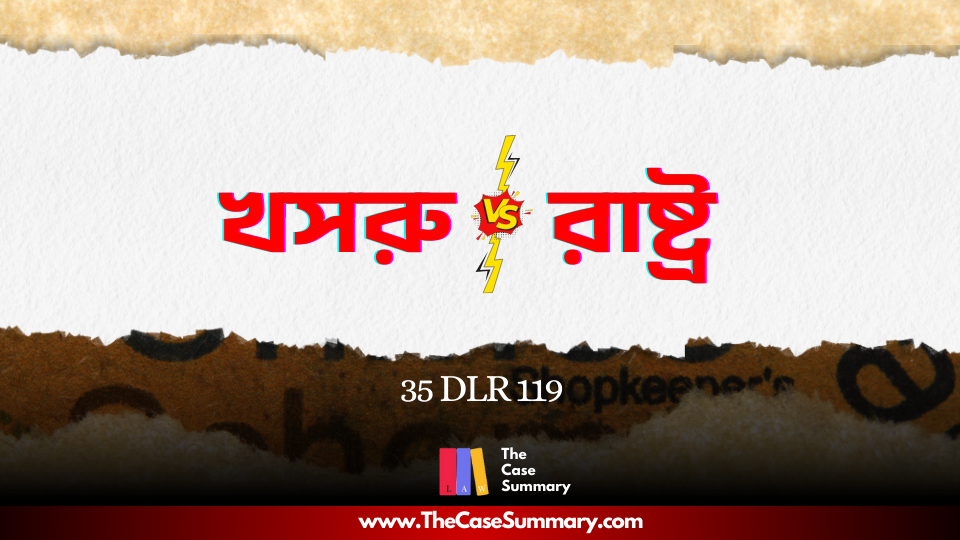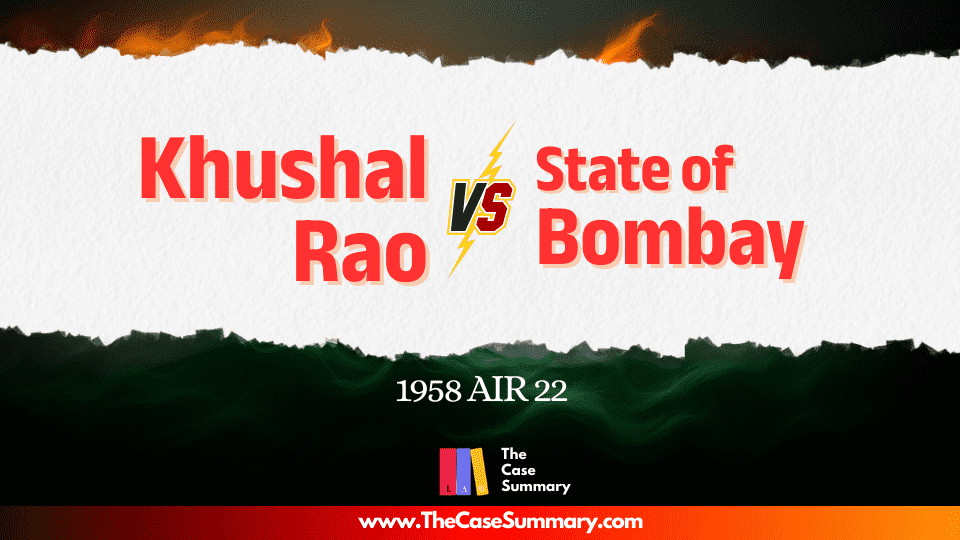Nibir Chandra Chowdhury and others vs State
Reference : 53 DLR (AD) (2001)
Jurisdiction : Bangladesh
Appellant-1 : Nibir Chandra Chowdhury (Defendant in the court of first instance)
Appellant-2 : Goutam Chandra Chowdhury (Defendant in the court of first instance)
Respondent : State (Prosecutor in the court of first instance)
Facts :
Two brothers, Nibir Chandra Chowdhury and Goutam Chandra Chowdhury, got into a heated argument with the victim’s wife when she was grazing her goat on their field. The victim, Golok Chandra, had an addiction to opium, and on that day, he had high blood pressure due to opium intake. At one point, the two brothers dealt blows to the chest of the victim who became senseless. The victim was brought inside his house and given three tablets. However, he passed away before the arrival of a doctor. The two brothers along with their father were charged with murder under the second clause of Section 300 of the Penal Code, read along with illustration (b). Although the blows dealt by the brothers would not be considered deadly under normal circumstances, the frail condition of the victim in this case ensured that the blows were enough to cause his death. However, the prosecution could not provide any evidence which would prove that the brothers had any knowledge of the victim’s frail condition.
Issues :
1. Was the offence in this case a murder or a culpable homicide not amounting to murder?
2. What should be considered by the court while imposing a fine in addition to imprisonment when the Penal Code provides the option of sentencing to either of the two or both at the same time?
Decisions :
Court of Additional Sessions Judge :
The Trial Court convicted all three of the accused of murder and sentenced each of them to imprisonment for life and to pay a fine of BDT 15,000 in default to rigorous imprisonment for 3 years, under Section 34 and Section 302 of the Penal Code.
High Court Division :
The High Court Division changed the conviction of the two brothers from murder to culpable homicide not amounting to murder under part 1 of Section 304 of the Penal Code. They were sentenced to rigorous imprisonment for 10 years and to pay a fine of BDT 10,000 in default to rigorous imprisonment for 1 year. Their father was acquitted of all charges.
Appellate Division :
Since the prosecution failed to prove that the accused had any knowledge of the victim’s frail condition, the Appellate Division concluded that no guilty intention to cause death was present. Thus, the offence in this case was a culpable homicide not amounting to murder. The Appellate Division also concluded that the accused brothers were to be convicted under part 2 of Section 304 of the Penal Code instead of part 1, as they did not have any guilty intention.
Under part 2 of Section 304 of the Penal Code, rigorous imprisonment, or fine, or both are suggested. The Appellate Division concluded that, in such cases, there should be some guidelines for imposing a fine in addition to imprisonment. Md Golam Rabbani J stated, ❝Penal Code fixes both imprisonment and fine for certain offences and imprisonment or fine for other offences. In the latter cases if the Court imposes sentence of imprisonment, then while imposing fine as an additional punishment the Court should give its reason so that it may be scrutinised by the appellate Court.❞ The Appellate Division formulated three basic principles in this regard. The conviction was altered, but the appeal was dismissed. Additionally, the sentence of fine was reduced to BDT 500 in default to rigorous punishment for 1 month.
Legal Principle :
Three basic principles to be followed while imposing a sentence of fine, as provided by the Appellate Division of the Supreme Court of Bangladesh –
1. The accused has gained pecuniary gain from the crime; or
2. The fine is specially needed to deter or correct the offender; or
3. The victim requires pecuniary help from the offender.
Relevant Laws :
- The Penal Code, 1860
- Section : 32, 300, 302, 304
Author :
1. S. M. Monzur Morshed
Note : The Case Summary is a platform by the law students, for the law students. We aim to summarize the facts and decisions of various important cases in both Bangla and English with utmost caution. However, this platform is in no way a replacement for going through the complete judgements by the law students and we discourage any learner from relying on case summaries alone. Thank you



